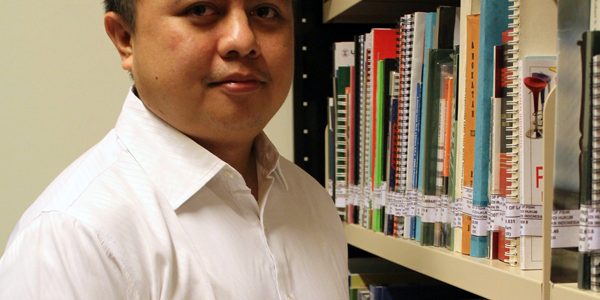Based on Article 24A paragraph (3) of the 1945 Constitution, the House of Representatives are included in the selection of public officials (in this case, the Supreme Court Justice). This authority becomes more clear and institutionalized after the Law on the Supreme Court and the Law on the Judicial Commission arranged more specifically the role of the House. Even so, there are aspects that seem to be ignored in the implementation of the House’s roles, therefore lessening the quality of the public officials election; public transparency and accountability. In fact, as the recipient of the representation mandate, the House should not merely acquire a source of power, but is also obligated to account for it. This means that there should be no tolerance whatsoever towards deviation of power. There is still possibility, in the end, the areas and models of power and taken apart and enhanced to avoid misuse. The dismantling would still sustain the check and balances between the branches of power.
Meanwhile, when power is active and involved in the election of Supreme Court Justices, simultaneously political interests also become considered. This is no problem if the political calculations are able to precisely and argumentatively side with competence and integrity. Meaning, power is in line with long-term orientation and benefits. Power does not flow in the direction of group benefits, rather to legal officials who have effectively protected the legal certainty and justice of the citizens.
However, the trends show that political calculations are able to defeat the parameters of competence and integrity. The role of power is not played in its proper field, even being smuggled to gain a new branch of power, which is increasingly problematic. It has been proven that the House has expanded its authority in legislative power through Law No. 3 Year 2009 on the Supreme Court and Law No. 22 Year 2004 on the Judicial Commission so that the power to “approve” is interpreted as power to “select”. The power to “select” in the form of fit and proper tests is infiltrated with political calculations dealing with the criteria of competence and integrity. The results? Political calculations submerge the accuracy of competence and integrity.
As a consequence of a political institution, the House’s basis for decisions must be political, making it inevitably a causal relationship. However, before a decision is formulated, the House should beforehand complete the assessment of competence and integrity. In other words, as the Supreme Court Justice candidates are no longer problematic in regards to competence and integrity, then can political judgment slide in. Unfortunately, reality sees it the other way around. While the background of these candidates is still problematical, the political aspect has entered and even at times isolated the competence and integrity profile of the candidates. Consequently, the chosen Supreme Court Justice candidate would still leave the problem of competence and integrity in the upcoming future.
Article 24A paragraph (3) of the 1945 Constitution firmly states that the House’s authority is limited to approval, without the interpretation and added action of “selection” by means of a fit and proper test. Therefore, the Judicial Commission should deliver candidates to the House according to the number required, no more (2 – 3times multiplied).
Such a pattern should also apply to other public official elections, such as the General Election Commission, the Corruption Eradication Commission and the Witness and Victim Protection Agency. Therefore, the position of the House has been “presented” by a preference with high standards of competence and integrity. Should the House select a Supreme Court Justice that is less than the one appointed by the Judicial Commission, it should be no problem since the chosen candidate is the one with the best profile.
In the long run, the 1945 amendment should redefine the scheme of the House involvement in public official elections, so that the existing pattern doesn’t happen again. Redefining the scheme of the House involvement in public official elections (within the scope of constitution) no longer has to be defined as decreasing House authority. In the context of Supreme Court Justice elections, for example, authorities of the House are increased by products of legislation: Law No. 3 Year 2009 on the Supreme Court and Law No. 22 Year 2004 on the Judicial Commission.
In the near future, provisions of Law No. 27 Year 2009 on the People’s Consultative Assembly, House of Representatives, House of Regional Representatives and Regional House of Representatives, plus the Standing Orders of the House of Representatives should grasp the issue at hand, as well as provide a mechanism that elevates transparency and accountability. House members not involved in the fit and proper testprocess or those discovered having conflicts of interest towards public official candidates are not given voting rights. Every question submitted by the House members during the fit and proper test should be recorded and published, including responses of the candidates. Then voting should be done openly so that the public may know about the performance and preferences of their representatives, especially during giving approval towards public official candidates.
By: Ronald Rofiandri (Researcher at Indonesian Centre of Law and Policies Studies)

